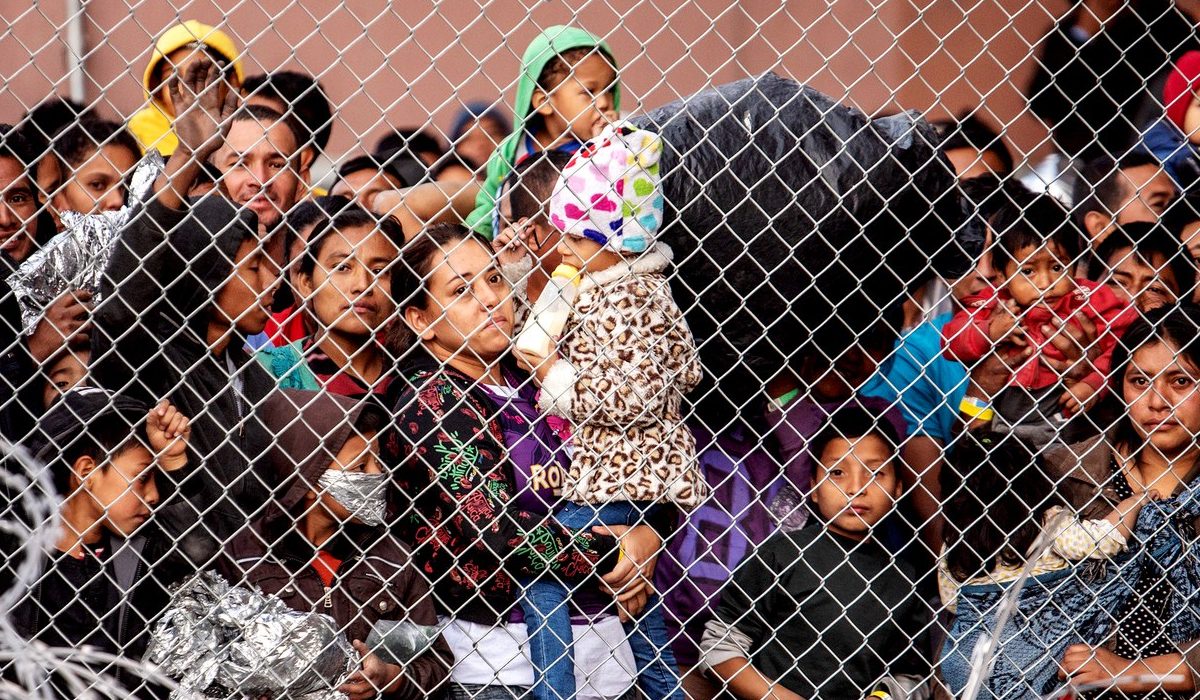The crisis at the Mexican-American border is a human rights crisis at a level of critical urgency, no doubt. Unfortunately, many such crises in this world go mostly under the radar. The difference here, is that the first time in a while (actually, not that long, re Japanese internment 1942 to 1946, racial segregation 1776 to ~now) the Global Superpower that be or, it wishes it were, is in muddy water as it publicly attempts to deny refugees seeking asylum as the world watches. And it’s only getting worse.
US migration: @unhumanrights Chief @mbachelet is appalled by conditions of detention for migrants/refugees & urges non-custodial alternatives. Border mgmt measures must not narrowly aim at detecting, detaining & deporting irregular migrants. https://t.co/XPFfy4h9Vf pic.twitter.com/lcpg07xjRt
— UN Human Rights (@UNHumanRights) July 8, 2019
There are children separated from their families, in cages. 5 children have died while detained. Immigrants are being denied basic human rights. They’re being neglected their rights to seek asylum. And frighteningly, they’re at the center of a debate between two sides of the American public.
For so many of us, this crisis is abhorrent. It goes without question. And yet, there are still many who doubt the legality, the rights, and even the existence, of these peoples seeking a better life. Or rather, life. Period. Most are escaping the dangers of extreme violence and poverty.
We’ve heard all of the attempts to persuade those on the right: “What about your family’s heritage? They were immigrants too!” “Our nation was built by immigrants!” “We are a melting pot!” These exclamations are valid. I do hope they would help steer people who have been manipulated by scapegoating fear to see the moral indecency they’re upkeeping. And yet, still unsettling is that many on the “morally superior” side are in shock that there are still those with this seemingly decrepit interpretation.
The most important thing to remember is that these events are not happening in a vacuum. Nor are these human rights atrocities new. The United States has a long-standing history intervening in Latin American countries disguised as “good neighbor” politics. This type of intervention has come in various forms, from various corrupt treaties to military intervention all in attempts to keep the United States in its same grandstanding economic and geopolitical positions. While the guise of good neighbor politics might look good from the outside, more often than not this type of intervention keeps the citizens of said countries down only for the United States to stay on top. For instance, United States banana companies had up to 1 million acres of land in Honduras, since moving business there in the 1890s. This capital, owned and operated by the United States leaves citizens unable to access their land and resources, creating an unstable and exploitative relationship of which its remains are still seen. The United States has blood on its hands both literally and metaphorically. And unfortunately, these horrors are left from our history books.
‘No shower, no shower’ — Watch this footage of Mike Pence and Senate Republicans touring the McAllen Border Station, where hundreds of men were seen crowded in cages, sleeping on the ground, and signaling that they had been detained for at least 40 days pic.twitter.com/XWaOnURQr7
— NowThis (@nowthisnews) July 13, 2019
I do not have a solution. But I do think that we must end this cycle of disbelief. There is a very real, very prominent fear, that’s only growing more violent and becoming more comfortable to spew. It cannot be met with, “I can’t believe this!” If seeing is believing then open your eyes, open them to the violent past and present of the United States (re: police brutality). We must ask ourselves, why? How? We can learn from history and grow from activism.
At the end of the day, these are human beings. We are human beings. The trivialities of nationality are becoming minute in this ever-connected world.
It can feel like there is little to nothing we can do. But we can learn from history, we can get involved in community orgs, and we can donate to organizations who have people on the ground. Stay informed, keep learning, and keep discussing.
Here are some ways you can help:
RAICES donate: https://www.raicestexas.org/unaccompanied-children-fund-leaf/?rd=an
RAICES volunteer: https://www.raicestexas.org/volunteer/?rd=an
KIND donate: https://donate.supportkind.org/give/188892/#!/donation/checkout


